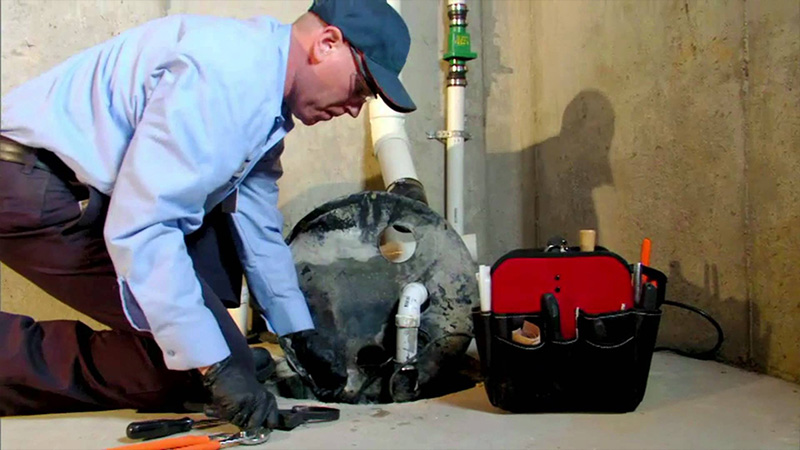Premium Water Filtration Systems: Making Certain Tidy and Pure Consuming Alcohol Water
Premium Water Filtration Systems: Making Certain Tidy and Pure Consuming Alcohol Water
Blog Article
Recognizing the Secret Components of Effective Water Filtering Systems

Value of Water Purification Equipment
Water filtering systems play a crucial function in making certain access to secure and clean drinking water by effectively eliminating contaminants and contaminations. These systems are essential in attending to the expanding problems over water top quality and the prospective health dangers connected with taking in infected water. By using different purification devices such as reverse osmosis, turned on carbon, and UV sterilization, water purification systems can effectively remove harmful substances like germs, viruses, heavy steels, and chemicals from the water.
In addition, water filtering systems aid to improve the taste and odor of water by eliminating chlorine, sediments, and various other pollutants that can impact its top quality. Water Treatment. This enhancement in water top quality not only makes it much more palatable however likewise motivates individuals to drink an appropriate quantity of water daily, advertising much better hydration and overall wellness
Sorts Of Purification Parts

Physical filters are designed to physically strain out impurities from the water. These filters can be made of materials like ceramic, carbon, or even sand, and they work by trapping particles bigger than the filter's pores as water travels through.
Chemical filters utilize numerous chemical processes to eliminate impurities from the water. Examples include turned on carbon filters, which adsorb pollutants, and turn around osmosis membranes, which use pressure to separate contaminants from the water.
Organic filters utilize living microorganisms like algae or bacteria to damage down natural matter and pollutants in the water. These filters are commonly utilized in wastewater therapy plants or natural water purification systems.
Recognizing the various kinds of filtering components is vital for selecting the most ideal water purification system for particular purification requirements.
Function of Sediment Filters
Debris filters play an essential duty in water filtration systems by efficiently catching solid bits suspended in the water. These filters are usually the initial line of defense in a filtration system, eliminating bigger bits such as sand, silt, dust, and corrosion before the water relocates with finer filtration phases. By capturing these sediments, the filters stop them from getting to downstream parts, hence expanding the lifespan and efficiency of the whole system.
The feature of debris filters is important in keeping water high quality and shielding sensitive devices from damages triggered by particles. In addition, by removing noticeable bits, sediment filters improve the clarity and preference of the water. Frequently changing or cleaning debris filters is necessary to ensure optimum performance. Overlooking this maintenance can result in blocking, minimized water circulation, and jeopardized purification performance. Overall, sediment filters are indispensable parts that contribute considerably to the efficiency of water filtering systems.
Function of Activated Carbon Filters
Playing a vital role in water filtration systems, turned on carbon filters contribute in removing contaminations and contaminants from the water. These filters are developed to adsorb and trap a vast variety of pollutants, consisting of chlorine, unstable organic compounds (VOCs), chemicals, and herbicides. The activated carbon product has a huge surface, permitting the effective trapping of pollutants through a process called adsorption. As water Your Domain Name travels through the filter, the turned on carbon holds and brings in onto the contaminations, ensuring that the water that comes out beyond is cleaner and much safer for intake.
Turned on carbon filters are highly effective at boosting the preference and odor anchor of water by reducing chemicals that can affect its quality. Due to their adaptability and integrity, turned on carbon filters are a crucial part in guaranteeing that water is detoxified to the highest requirements before reaching customers.
Recognizing Reverse Osmosis Systems
Reverse osmosis systems are innovative water filtering systems that use an advanced procedure to get rid of contaminants and impurities from alcohol consumption water. These systems function by using stress to the water, forcing it via a semi-permeable membrane layer. This membrane functions as a barrier, allowing just pure water particles to pass through, while blocking bigger particles such as minerals, chemicals, and other pollutants. Because of this, the water that appears beyond is dramatically cleaner and safer for intake.
One key advantage of reverse osmosis systems is their capability to eliminate a wide array of pollutants, including heavy metals, liquified infections, microorganisms, and solids. This makes them very effective in enhancing the overall top quality and safety and security of drinking water. Furthermore, reverse osmosis systems are fairly low-maintenance and can be set up under the sink or in a main filtration system, supplying hassle-free accessibility to clean water throughout the home. Overall, understanding how reverse osmosis systems work can aid people make informed choices concerning their water purification demands.
Verdict
In final thought, reliable water filtering systems are essential for ensuring tidy and secure alcohol consumption water. By recognizing the function and role of each component, individuals can make educated choices when choosing a water filtering system.
Water filtering systems play a vital duty in making sure access to secure and clean alcohol click to find out more consumption water by properly eliminating pollutants and contaminations. By making use of numerous purification systems such as reverse osmosis, turned on carbon, and UV sterilization, water filtering systems can successfully remove damaging compounds like microorganisms, viruses, heavy metals, and chemicals from the water supply.
Sediment filters play an essential role in water filtration systems by effectively catching strong fragments suspended in the water (Water Softeners).Playing a critical duty in water purification systems, activated carbon filters are important in getting rid of pollutants and pollutants from the water supply.Reverse osmosis systems are sophisticated water filtering systems that employ an innovative process to remove impurities and pollutants from alcohol consumption water
Report this page